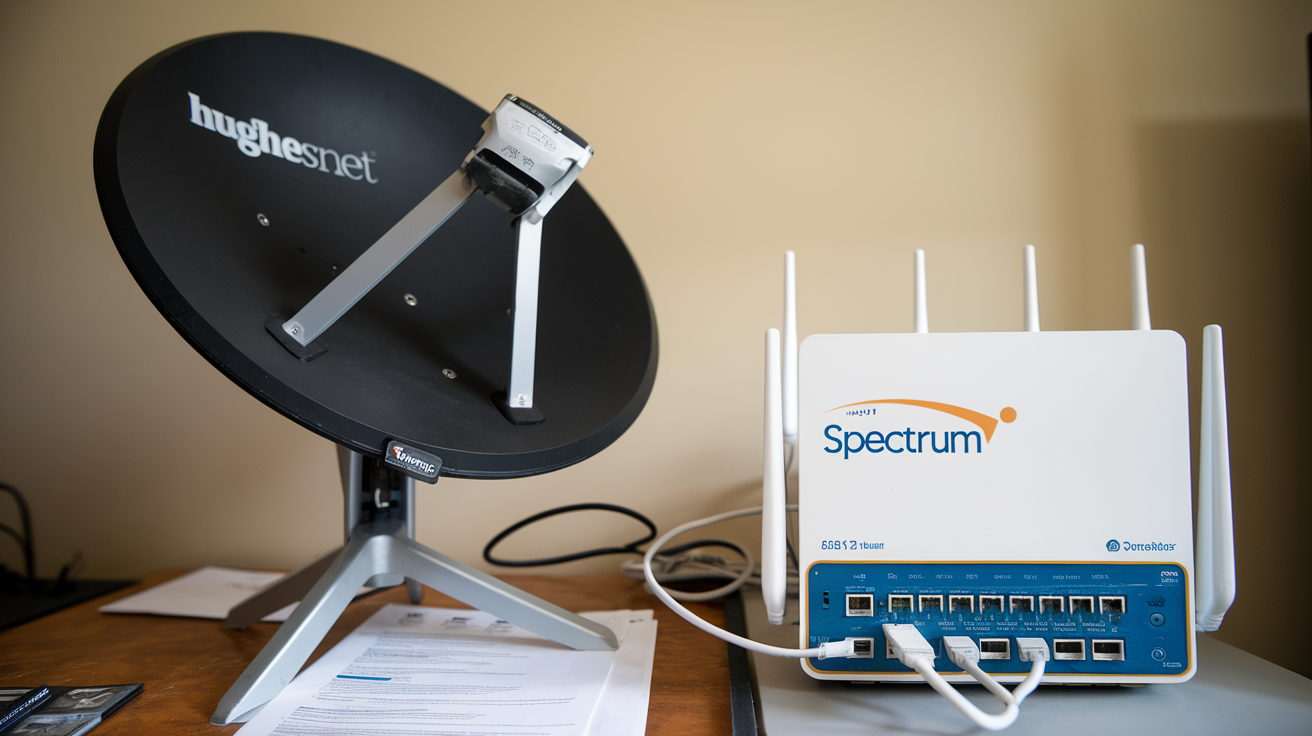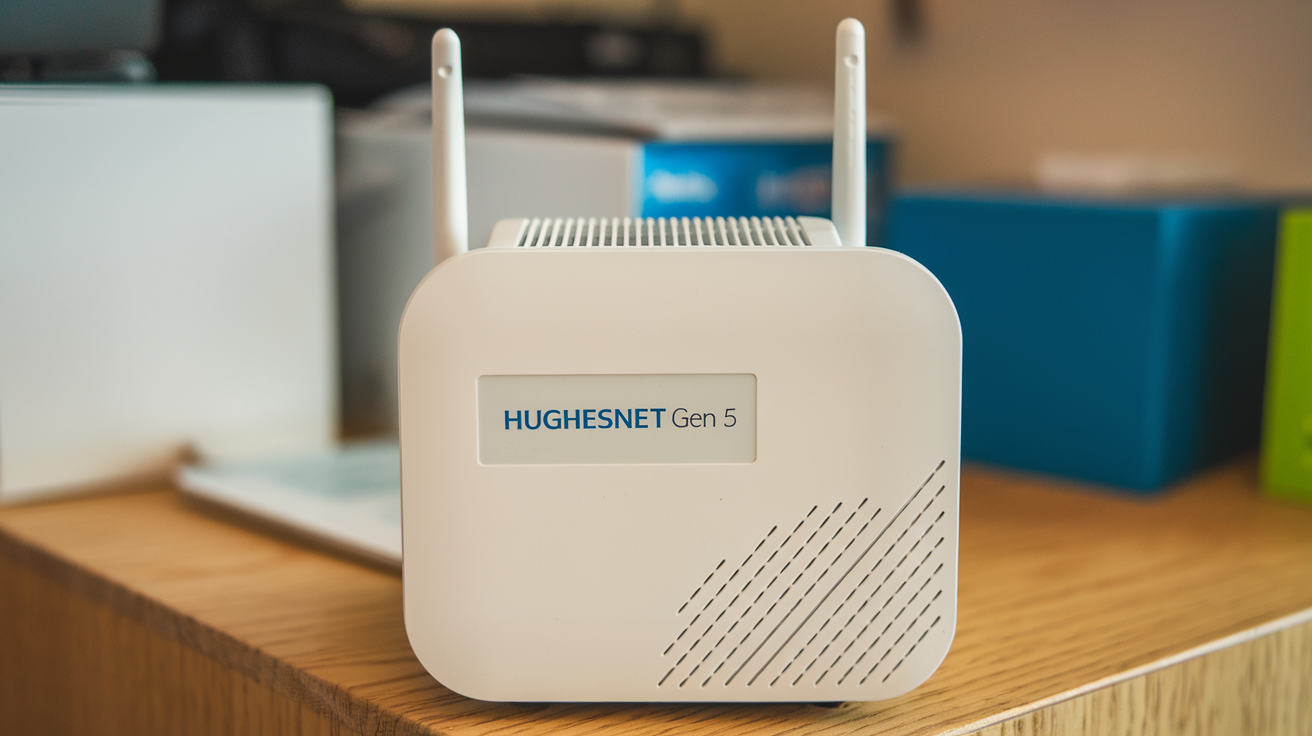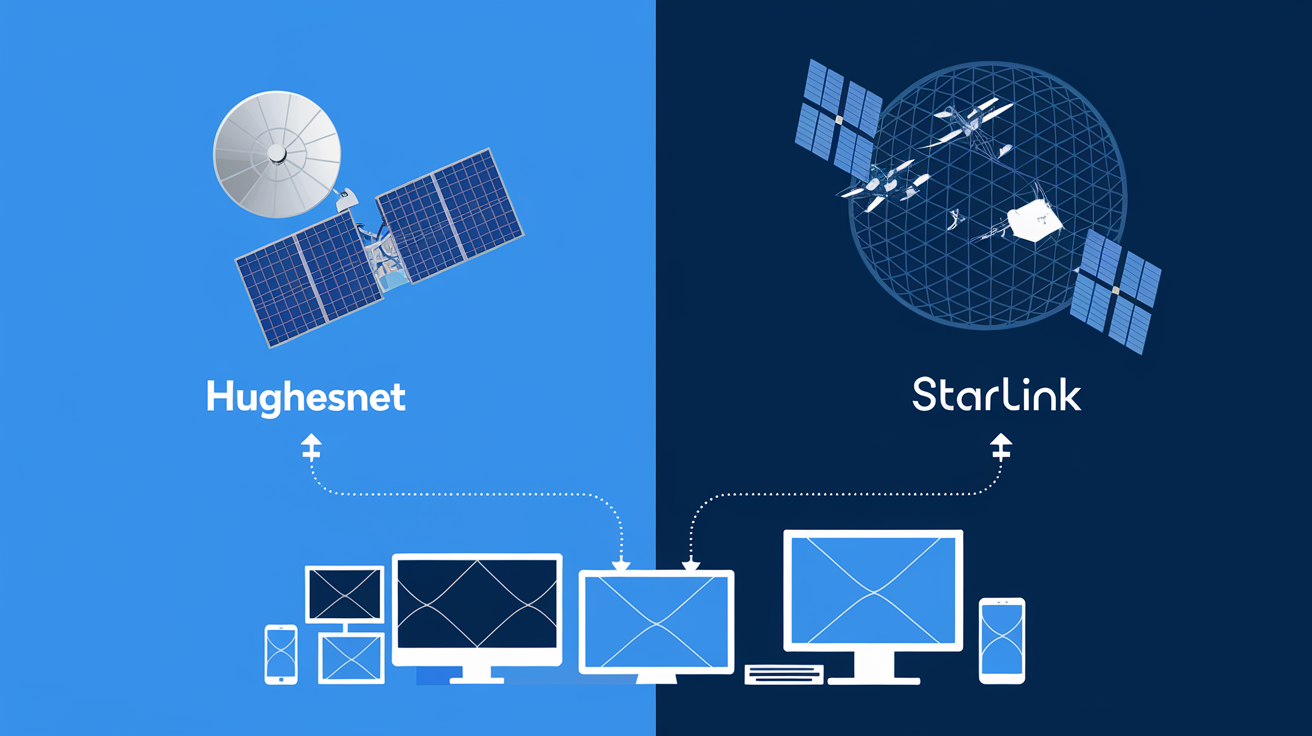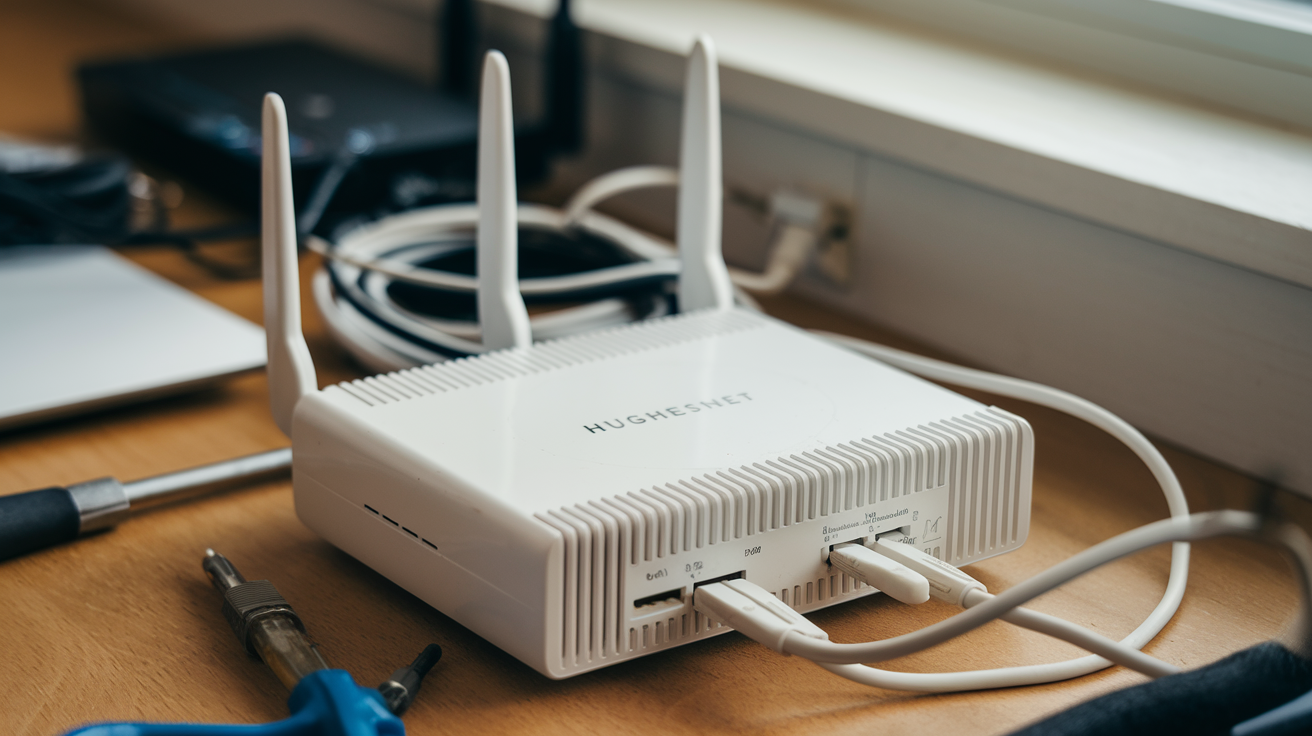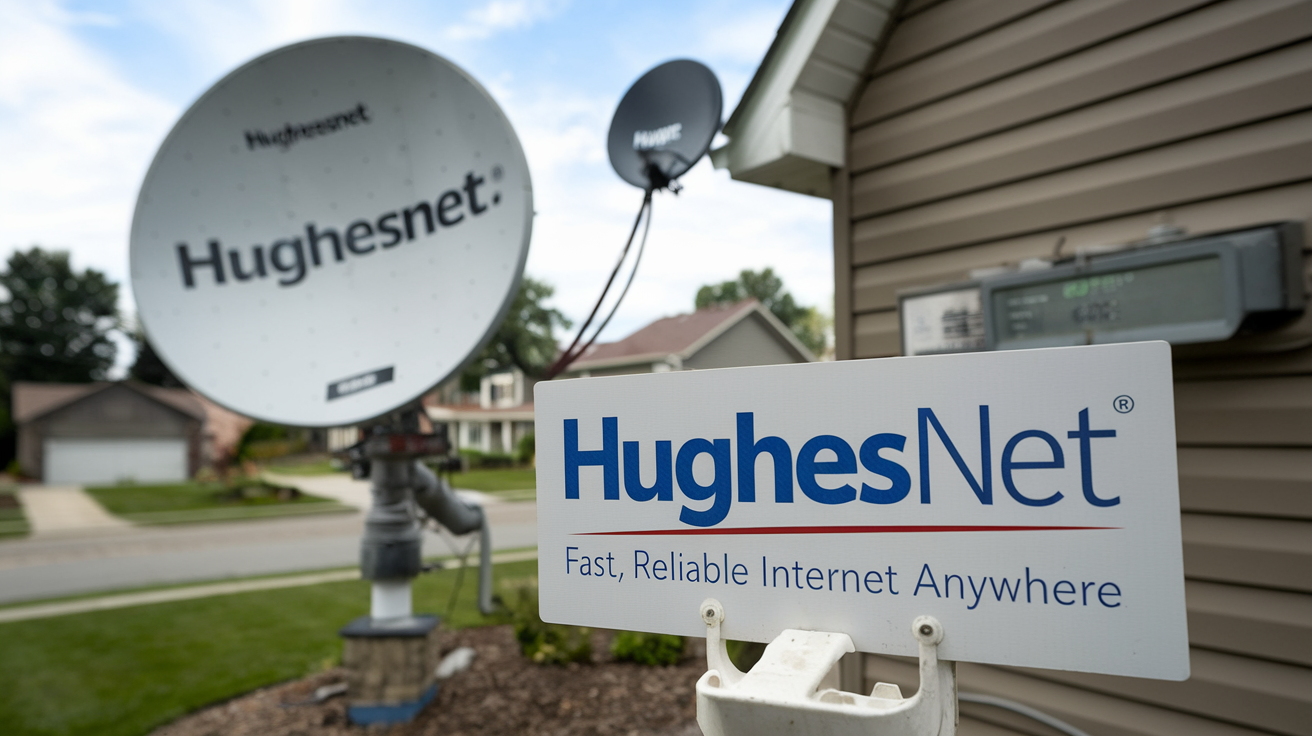-
Posted on: 24 Dec 2024

-
For people living in rural areas who may not have good options for regular internet service, satellite internet is often the best choice. HughesNet service is a top provider in this area. They offer wide coverage and different plans to help connect those in communities that need it the most. This article will look at the benefits of HughesNet satellite internet, review its various plans, and discuss its technology and how it compares to others.
Why Choose HughesNet for Your Internet Needs
In today’s world, we all want to stay connected. HughesNet offers reliable internet service that helps close the gap in technology access. So, what makes HughesNet different? It’s all about being available and providing faster speeds.
HughesNet is a top satellite internet provider with coverage across the entire nation. It can reach even the farthest places in the United States. This is great for rural areas where other internet choices may not be available. Additionally, HughesNet has improved its service, providing download speeds of up to 100Mbps. This upgrade greatly improves the user experience overall.
The Advantage of Satellite Internet in Rural Areas
Satellite internet is becoming very important for people in rural areas. Many traditional internet providers have a hard time reaching customers who live far away. That’s where satellite internet comes in as a great solution.
It sends internet signals directly to homes, no matter where they are located. So, whether you live on a farm or in the mountains, satellite internet keeps you connected even if cable and fibre options are not available.
This easy access allows people to join in on today’s online world. They can work from home, take online classes, use telehealth, and enjoy streaming services. Satellite internet gives rural communities chances similar to those in more populated areas.
HughesNet's Commitment to Reliable Connectivity
HughesNet service aims to provide reliable internet service to everyone, no matter where they are. Hughes Network Systems, a leader in satellite technology, keeps upgrading its infrastructure to stay on top of the industry.
The launch of the Jupiter 3 satellite shows HughesNet's effort to improve its network. This new geostationary satellite is about the size of a bus. It greatly increases HughesNet's capacity, which helps it meet more demand and offer faster speeds.
HughesNet is committed to innovation, ensuring it can provide a steady and dependable internet experience. This is important as the need for bandwidth grows and the number of connected devices increases.
Exploring HughesNet Satellite Internet Plans
HughesNet knows that everyone has different internet needs. That’s why they provide various plans to meet many needs and budgets. Whether you just check emails and browse a little, or your family uses a lot of data for streaming and gaming, HughesNet has a plan for you.
Their plans take into account download speeds, data limits, and prices. This helps you choose the best option based on how you use the internet and your budget. Let’s look more closely at these plans to see what makes them special and how they can help you.
Plan Options Tailored for Different User Needs
HughesNet has three main internet plans: Select, Elite, and Fusion. Each plan is designed to meet different user needs. Understanding these plans helps you choose the best option for your internet use.
- Select: This plan is a great starting point. It offers download speeds of up to 50Mbps. It works well for activities like web browsing, sending emails, and using social media.
- Elite: The Elite plan offers higher download speeds of up to 100Mbps. It is ideal for households that use the internet a lot, like for streaming or several users online at once.
- Fusion: The Fusion plan combines satellite internet and wireless technologies. This mix provides a more responsive internet experience. It is great for activities that require quick response times, like online gaming.
HughesNet provides these different internet plans to give you options. You can choose a plan that fits how you use the internet, the size of your home, and the type of internet experience you want.
Understanding Data Caps and How They Work
HughesNet says its plans provide unlimited data. This might sound great at first. However, it is important to know how their data system works. You won't get hard limits on data or extra fees. However, your internet speeds can change based on how much data you use.
HughesNet uses two types of data: priority data and standard data. Each plan has a set amount of priority data. This data lets you enjoy the speeds that HughesNet advertises. Once you run out of this priority data, unlimited standard data kicks in.
But keep in mind that standard data can be slowed down during busy times. This means you could face slower speeds when many people are online. So while HughesNet's unlimited data offers comfort, it’s best to pick a plan with enough priority data for your regular needs. This helps keep your internet speeds consistent.
Technical Insights: How HughesNet Delivers Internet
HughesNet can give internet access to even the most remote places. This is thanks to its advanced satellite technology. HughesNet uses a network of satellites that circle the Earth. This system does not rely on traditional cables or fibre optic lines.
Here’s how it works: data signals go from HughesNet’s ground stations to satellites in space. Then, the satellites send these signals back to the dish at the customer’s home. This way, areas far from ground-based internet systems can still get broadband access.
The Technology Behind Satellite Internet
Satellite internet, including HughesNet's service, uses advanced wireless technologies to connect your home to space. This relies on several key parts that work together: a satellite dish at your home, a satellite flying in space, and a ground station run by HughesNet.
When you want to access data, like loading a website, your modem sends this request to the satellite dish. The dish acts like an antenna and sends the signal to a satellite located above Earth. The satellite then sends the request to a ground station. There, it gets the data you requested.
Next, the process goes in reverse. The ground station sends the data back to the satellite, which sends it to your satellite dish. This whole process is called latency. Although satellite internet can have more latency issues than regular internet, HughesNet has made great progress with its Jupiter system. This means a better online experience for users.
Optimizing Your Home Network with HughesNet
Satellite internet usually has a higher delay than regular options. However, you can improve your home network for a better internet experience with HughesNet. Here are some tips:
- Place your HughesNet equipment in a good spot. Make sure your modem and router are in the centre of your home and away from anything that might block the signal.
- Be careful with how you use bandwidth. Activities like streaming or online gaming can affect how other devices in your homework. HughesNet's plans usually provide much faster download speeds than upload speeds. This difference is normal for satellite internet and might make things like uploading large files or video calls a bit slower.
Comparing HughesNet Against Other Providers
In a world where satellite internet providers are growing, it’s important to see how HughesNet compares with others. Many internet service providers (ISPs) work in certain areas. However, looking at HughesNet and its main rival, Viasat, can give useful insights.
This analysis will look at key points like speed and performance, customer satisfaction, and pricing. It aims to give a clear picture of HughesNet's place in the market. With this information, you can better decide if HughesNet fits your internet needs and choices.
Speed and Performance: HughesNet vs. Competitors
When evaluating internet providers, speed and performance are often the primary considerations. In the realm of satellite broadband internet, download speeds are measured in mbps (megabits per second). Here's how HughesNet fares against Viasat in this department:
While Viasat edges out HughesNet with a higher maximum download speed, it's noteworthy that both providers deliver speeds that meet the FCC's definition of broadband internet (25 Mbps download, 3 Mbps upload).
However, it's essential to acknowledge that latency, the delay in data transmission, remains a challenge inherent to satellite internet technology. This latency can be more noticeable during activities requiring real-time responsiveness, such as online gaming or video conferencing.
Customer Satisfaction: What Users Are Saying
Looking at customer satisfaction ratings from surveys and reports can help us understand how people experience an internet service provider. HughesNet has had some issues in the past, but the company is working hard to get better. They are focusing on improving their network and customer support.
Customer experiences may differ based on things like where they live, the equipment they use, and their service plan. Overall, the HughesNet invoice shows monthly charges and fees clearly. However, new customers should know about installation fees, equipment rental or buying costs, and the usual two-year contract to avoid any surprises.
HughesNet is making good efforts to enhance its customer service. Their affordable prices are especially helpful for rural customers. All these steps have helped boost customer satisfaction.
Conclusion
HughesNet provides advanced satellite internet plans. They are designed for different user needs, especially in rural areas. Satellite internet has many benefits, and HughesNet aims to offer smooth service. This makes it a great choice for internet solutions.
Knowing about data caps and improving your home network can help you enjoy the internet more. When you compare HughesNet with other providers, you will see its speed, performance, and customer satisfaction are impressive. With HughesNet, you can easily stream content. This makes it a flexible option for your entertainment needs.
